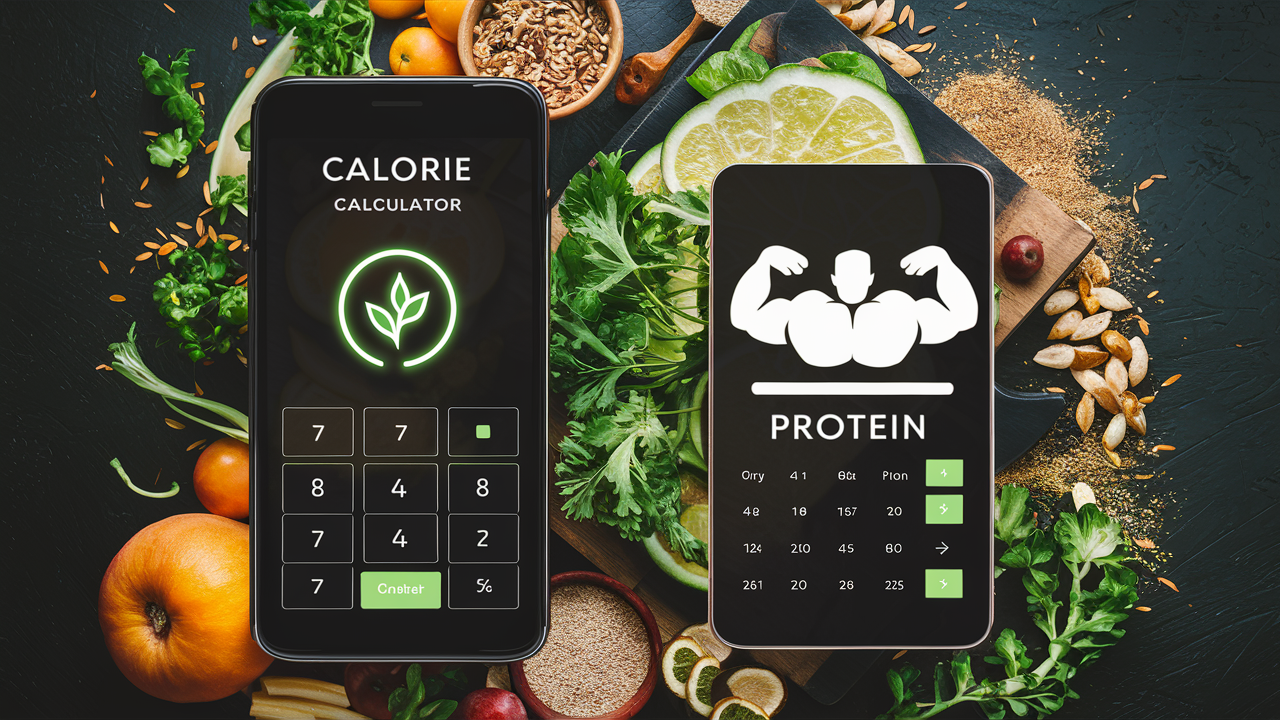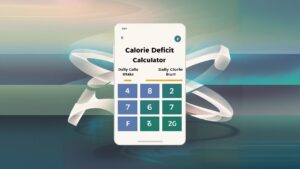Making informed choices about what you eat is crucial for maintaining good health and well-being. Navigating the world of nutrition can seem complex, but two valuable tools – calorie calculators and protein calculators – can empower you to create a personalized plan for healthy eating. This blog post delves into these calculators, exploring their functionalities, the factors they consider, and how they can guide you towards a balanced and nutritious diet.
Demystifying Healthy Eating: Understanding Your Nutritional Needs
Our bodies require various nutrients in specific proportions to function optimally. Here’s a breakdown of the key factors influencing your individual nutritional needs:
- Basal Metabolic Rate (BMR): The minimum amount of energy your body needs at rest to maintain vital functions. BMR is influenced by factors like age, sex, height, and weight.
- Activity Level: The more active you are, the higher your daily calorie needs to fuel your body’s increased energy expenditure.
- Dietary Goals: Whether you aim to lose weight, maintain your weight, or gain muscle, your calorie intake needs to be adjusted accordingly.
Understanding your BMR and activity level provides a starting point for determining your daily calorie needs. However, accurately calculating these can be challenging. This is where calorie calculators emerge as helpful tools.
Unveiling the Power of Calorie Calculators: Estimating Your Daily Calorie Needs
Calorie calculators are software applications designed to estimate the number of calories your body needs each day to maintain its current weight, lose weight, or gain weight. They typically require users to input information like:
- Age: Age is a key factor influencing BMR, as metabolic rate tends to decrease with age.
- Sex: Men typically have a higher BMR than women due to muscle mass differences.
- Height: Taller individuals generally have a higher BMR than shorter individuals.
- Weight: Your current weight is factored in to estimate calorie needs for maintaining, losing, or gaining weight.
- Activity Level: Selecting your activity level (sedentary, moderately active, very active, etc.) helps determine the additional calories burned through physical activity.
- Goal: Specifying your goal (weight loss, maintenance, muscle gain) allows the calculator to adjust the estimated calorie needs accordingly.
The calculator considers these factors and established formulas to estimate your daily calorie needs and may provide breakdowns of macronutrients (carbohydrates, protein, fat) required for a balanced diet.
Here are some key benefits of using calorie calculators:
- Personalized Calorie Goals: Gain a personalized estimate of your daily calorie needs based on your specific characteristics and goals.
- Informed Diet Planning: Use the estimated calorie intake to create a meal plan that aligns with your overall health and fitness goals.
- Weight Management Support: Calorie calculators can be helpful tools for weight loss or muscle gain by guiding you on creating a calorie deficit or surplus, respectively.
Important Caveat: Calorie calculators provide estimates, and individual variations can occur. Factors like genetics, hormonal fluctuations, and underlying health conditions can influence calorie needs. Consulting a registered dietitian or nutritionist is recommended for personalized dietary guidance tailored to your specific needs and health profile.
Unveiling the Power of Protein Calculators: Determining Your Protein Requirements
Protein is an essential nutrient that plays a crucial role in building and repairing tissues, supporting enzyme function, and maintaining a healthy metabolism. Protein calculators are designed to estimate the amount of protein an individual needs daily. They typically consider factors like:
- Weight: Your body weight is a key factor in determining protein requirements.
- Activity Level: More active individuals generally require more protein to support muscle growth and repair.
- Fitness Goals: Those aiming to build muscle mass might require a higher protein intake compared to those with different goals.
- Age: Protein needs can vary slightly depending on age, with some considerations for increased requirements during growth and development stages or recovery from injuries.
The calculator considers these factors and established guidelines to estimate your daily protein needs in grams.
Here are some key benefits of using protein calculators:
- Optimal Protein Intake: Gain an estimate of the protein amount required to support your body’s needs based on your weight, activity level, and goals.
- Informed Diet Planning: Use the estimated protein intake to incorporate protein sources like lean meats, fish, eggs, legumes, and dairy products into your diet plan.
- Muscle Building Support: For individuals focused on muscle building, protein calculators can help ensure they are consuming enough protein to support muscle growth and repair.
Important Caveat: Similar to calorie calculators, protein calculators provide estimates. Consulting a registered dietitian or nutritionist can ensure a personalized protein intake recommendation that considers your specific health, dietary preferences, and potential allergies



